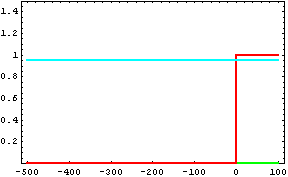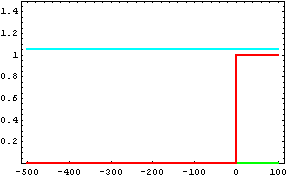 Academic Integrity Academic Integrity |


| Professor: |
Georg Hoffstaetter |
| (607)255-5197, 118 Newman Lab,
Georg.Hoffstaetter@cornell.edu (607)254-8981, 226 Wilson Lab, www.lepp.cornell.edu/~hoff |
|
| Teaching Assistants: | (1) Steve
Drasco, sd68@cornell.edu,
(607)255-6789, 611 Space Science, http://baba.astro.cornell.edu (2) Pierre Thibault, pt68@cornell.edu, (607)255-6072, 516 Clark Hall |
 Academic Integrity Academic Integrity |


| Dates |
|||
| Mo | 01/ 24/ 05 | Room 132, Rockefeller Hall | First lecture |
| We |
01/ 26/ 05 |
First section |
|
| Fr |
02/ 25/ 05 |
Room 132, Rockefeller Hall | Qui |
| |
03/ 21 - 03/ 27 | Spring break | |
| Fr |
04/ 01/ 05 |
Room 132, Rockefeller Hall | Quiz |
| Fr |
05/ 06/ 05 |
Room 132, Rockefeller Hall | Last lecture |
| Th |
05/12/05 12:00-14:30 |
Schwartz Auditorium, Rockefeller Hall |
Final Exam
|
| Mo | 09:05 - 09:55 | Room 132, Rockefeller Hall | Lecture |
| Mo | 14:30 - 15:20 | Room 611, Space Science | Office hours, TA1 |
| Tu | 14:30 - 15:20 | Room 611, Space Science | Office hours, TA1 |
| We | 09:05 - 09:55 | Room 132, Rockefeller Hall | Lecture |
| We | 13:25 - 14:15 | Room 127, Rockefeller Hall | Section TA2 |
| We |
15:00 - 16:00 |
Room 516, Clark Hall |
Office
hours, TA2 |
| Th |
15:35 - 16:25 |
Room 102, Rockefeller Hall |
Section TA1 |
| Th |
16:30 - 17:30 |
Room 516, Clark Hall |
Office
hours, TA2 |
| Fr | 09:05 | Room 132, Rockefeller Hall |
Exercises
due
|
| Fr | 09:05 - 09:55 | Room 132, Rockefeller Hall | Lecture |
|
Fr
|
10:00 - 11:50 | Room 118, Newman Lab | Office
hours, Prof. Hoffstaetter |
| DATA |
TITLE |
| 01/24/2005 |
Modern Physics |
| 01/26/2005 | Derivation of black-body
radiation |
| 01/28/2005 | Average energy in each mode for
light quanta |
| 01/31/2005 |
Further evidence for photons |
| 02/02/2005 |
The Rutherford-Bohr Atom |
| 02/04/2005 |
Stimulated emission for black
body radiation |
| 02/07/2005 |
Wave properties of particles |
| 02/09/2005 |
George Thomson's experiment |
| 02/11/2005 | Wave properties of neutrons, atoms and ions |
| 02/14/2005 | The wave-particle duality and
bound states |
| Letter
to the Nobel Web |
Detective story about E. and R.
Schroedinger's Bibliography |
| 02/16/2005 | The stationary Schroedinger
Equation |
| 02/18/2005 | Particles in nonrigid boxes |
| 02/21/2005 | Qualitative plots of bound-state
wave functions |
| 02/23/2005 | Stationary states in the square
well |
| 02/28/2005 | Time dependence of quantum states |
| 03/02/2005 | Orthogonality for different
Energies |
| 03/04/2005 | Two quantum particles |
| 03/07/2005 | Orthogonality for different
Energies |
| 03/09/2005 | Two subsequent polarizers for
light waves |
| 03/11/2005 | Conversion of polarization states |
| 03/14/2005 | Quantum amplitudes and state
vectors |
| 03/16/2005 | Projection amplitudes for linear
and circular polarization |
| 03/18/2005 | Quantum amplitudes for circular
polarization |
| 03/28/2005 | Physical correspondence to
polarization states |
| 03/30/2005 | Projection probabilities and ket
vectors |
| 04/04/2005 | Dispersion of free-particle
packet states |
| 04/06/2005 | The energy time uncertainty
relation |
| 04/08/2005 | Potential steps |
| 04/11/2005 | Approximation of tunneling |
| 04/13/2005 | Expectation values for px |
| 04/15/2005 | Spherically symmetric potentials
and wave functions |
| 04/18/2005 | Normalization and probability
density for spherical symmetry |
| 04/20/2005 | Expectation values for px |
| 04/22/2005 | Angular momentum and magnetism |
| 04/25/2005 | Angular momentum and atomic
systems |
| 04/27/2005 | Spin: intrinsic angular momentum |
| 04/29/2005 | The radial part of the wave
function |
| 05/02/2005 | State vector with spin |
| 05/04/2005 | Wave functions with properties
that resemble Bohr orbits |
| 05/06/2005 | The periodic table |
| math questionnaire on 01/24/05 | question and answer review of complex numbers |
||
| handed out on 01/28/05, due on 02/04/05 | Homework 1 |
question and answer | |
| handed out on 02/04/05, due on 02/11/05 | Homework 2 | question and answer | |
| handed out on 02/11/05, due on 02/18/05 | Homework 3 | question and answer | |
| handed out on 02/18/05, due on 02/25/05 | Homework 4 | question and answer |
|
| handed out on 02/25/05, due on 03/04/05 | Homework 5 | question and answer | |
| handed out on 03/04/05, due on 03/11/05 | Homework 6 | question and answer | |
| handed out on 03/11/05, due on 03/18/05 | Homework 7 | question and answer | |
| handed out on 03/18/05, due on 04/01/05 | Homework 8 | question and answer |
|
| handed out on 04/01/05, due on 04/08/05 | Homework 9 | question and answer | |
| handed out on 04/08/05, due on 04/15/05 | Homework 10 | question and answer practice quiz |
|
| handed out on 04/15/05, due on 04/22/05 | Homework 11 | question and answer |
|
| handed out on 04/22/05, due on 04/29/05 | Homework 12 | question and answer | |
| handed out on 04/29/05, due on 05/06/05 | Homework 13 | question and answer |
| February |
Questions and answers | |
| April |
Questions and answers | |
| May |
| Auxiliary material for 2nd quiz
and final exam |
|
| 1. | One
handwritten page of formulas |
| 2. | No
calculators, no computers |
| 3. |
No lecture notes |
| 4. | No solutions from the exercises |
| 5. | No
books |
| 6. |
No
cell phones |
Send comments to G. H. Hoffstaetter
Last Update: 04-26-2005